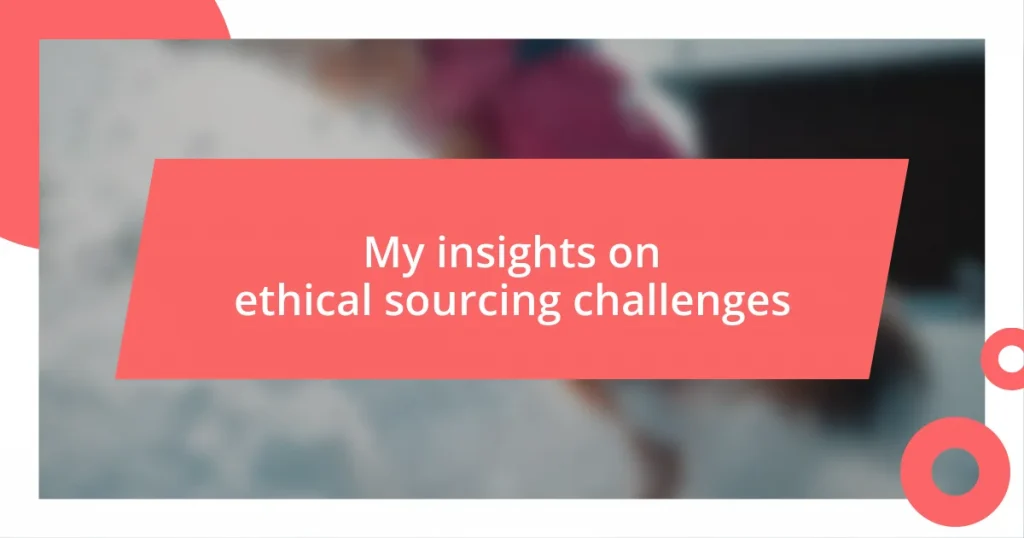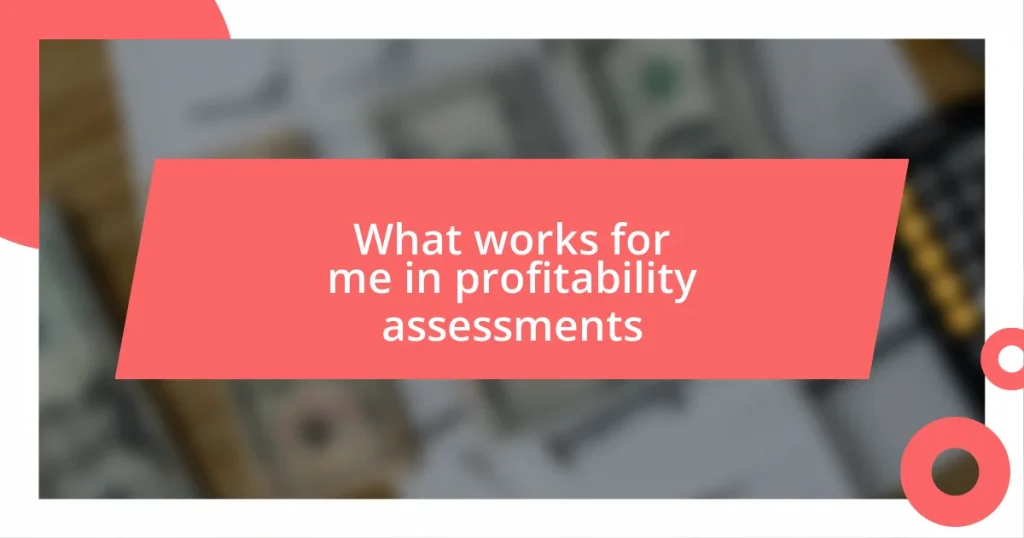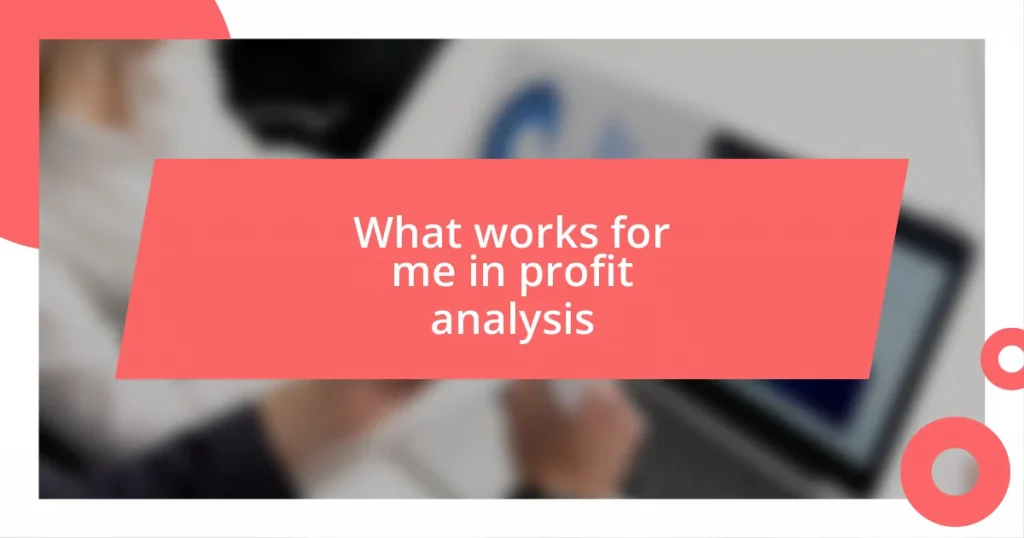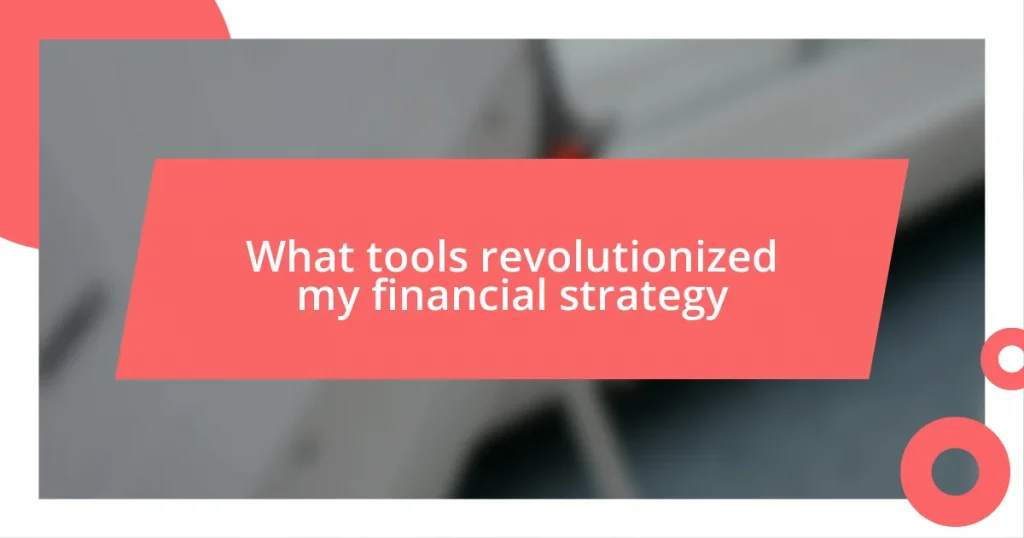Key takeaways:
- Ethical sourcing is complicated by opaque supply chains, making it challenging to identify genuinely responsible suppliers.
- Transparency in supply chains fosters trust between consumers and brands, leading to improved customer loyalty and an empowered workforce.
- Building direct relationships with suppliers, utilizing technology for visibility, and investing in team training are effective strategies to overcome sourcing challenges.
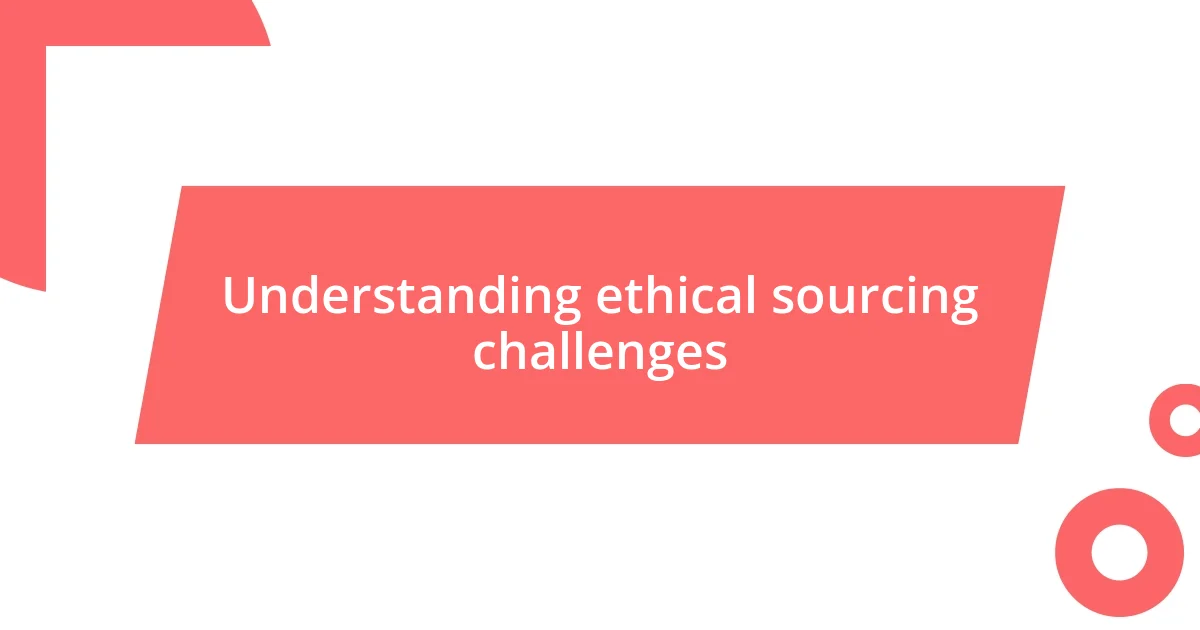
Understanding ethical sourcing challenges
When I first delved into the world of ethical sourcing, I was struck by the complexity of the supply chains involved. Imagine the countless hands that touch a product before it reaches the consumer—each with their own set of working conditions and ethical implications. This intricacy can make it incredibly challenging to ensure that all practices are fair and responsible.
One of the biggest hurdles I’ve faced is identifying suppliers who genuinely prioritize ethical practices versus those who simply claim to do so. It’s like searching for a needle in a haystack. How can we truly verify their commitments to sustainability and fair labor practices? This question often lingers in my mind, pointing to the necessity for transparent communication and rigorous auditing processes.
In my journey, I’ve also learned about the emotional weight that ethical sourcing carries. Personally, it’s disheartening to think that a product I choose might come at the expense of someone else’s well-being. This realization fuels my passion for advocating for more responsible sourcing practices, as I believe consumers have the power to influence change when they demand accountability.
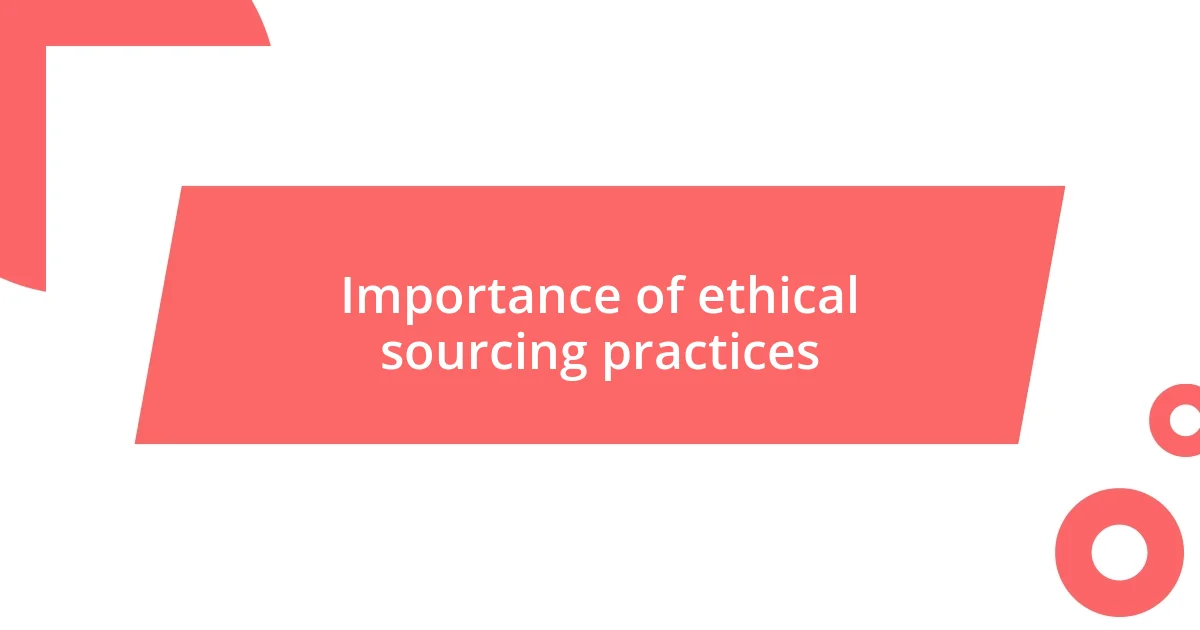
Importance of ethical sourcing practices
Ethical sourcing practices are essential not only for the welfare of workers but also for the overall sustainability of our planet. I’ve personally witnessed how companies that prioritize ethical sourcing have a positive ripple effect on communities, often leading to improved education and health care for workers and their families. It’s rewarding to think that these practices can uplift entire regions while fostering a deeper appreciation for the products we consume.
Here are some compelling reasons to embrace ethical sourcing:
- Consumer Trust: Brands that are transparent about their sourcing practices tend to build lasting trust with their customers, as I’ve seen in my experiences with businesses that openly share their supply chain stories.
- Improved Quality: In my observations, ethically sourced products often boast higher quality due to more stringent standards applied during production.
- Positive Company Culture: I’ve noticed that companies dedicated to ethical practices often cultivate a motivated workforce, leading to a more harmonious and productive work environment.
- Long-term Profitability: As ethical sourcing becomes increasingly important to consumers, companies that adapt early can secure a competitive edge and achieve sustainable growth.
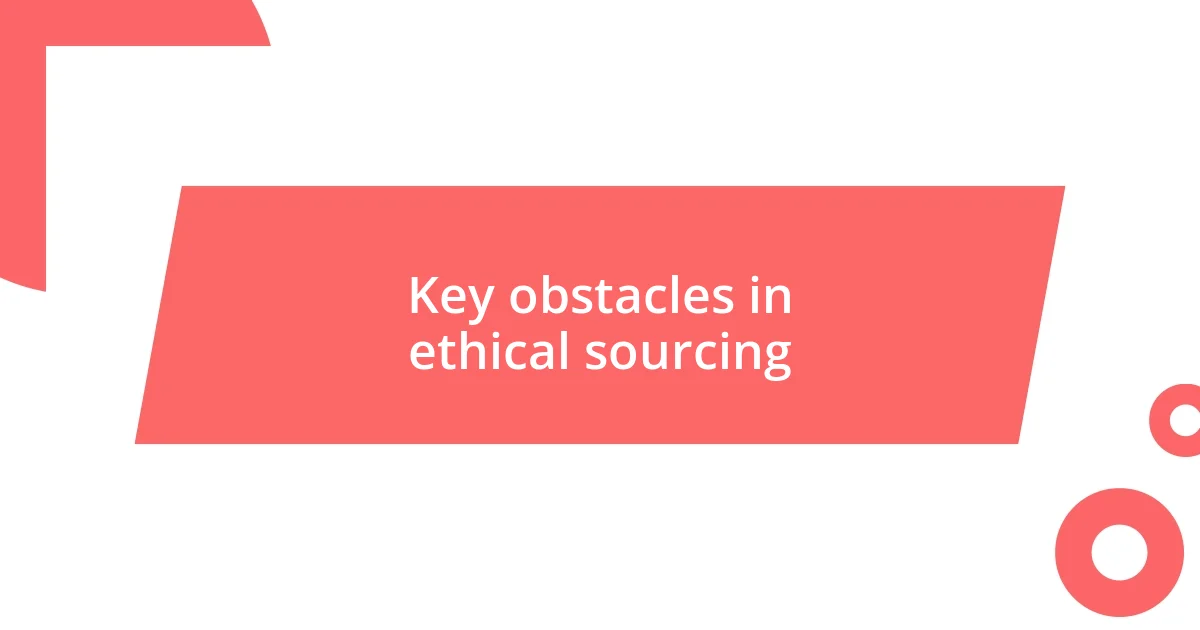
Key obstacles in ethical sourcing
The complexity of ethical sourcing often creates significant challenges for businesses. One of the most pressing issues is the lack of transparency in supply chains. My own experiences have taught me that many suppliers are reluctant to share information about their practices, which raises red flags. When I’ve tried to engage suppliers in conversation about their sourcing methods, I’ve often felt like pulling teeth. How can we instill trust when key details remain obscured?
Another obstacle that frequently emerges is the fluctuating regulatory environment. Keeping up with various laws and standards across different countries can be overwhelming. I remember a time when a supplier in a developing country suddenly faced new regulations, leaving us scrambling to comply without a clear understanding of the impact on our commitment to ethical sourcing. The constant need to adapt can feel daunting, especially when it threatens our ethical principles.
Additionally, the financial pressures of sustainable sourcing can be challenging for many businesses. I have often witnessed smaller companies struggle to balance ethical practices with the need to remain competitive. It brings to mind a conversation I had with a small brand owner who felt torn between ethical sourcing and profit margins. They believed that consumers should support ethical products, but their daily reality made it difficult to prioritize ethics over immediate financial survival. This tension is a reality for many.
| Obstacle | Description |
|---|---|
| Lack of Transparency | Difficulty in obtaining clear information about suppliers’ ethical practices. |
| Fluctuating Regulations | Challenges in adapting to inconsistent laws across different nations. |
| Financial Pressures | Struggles of smaller businesses to balance ethical sourcing with profitability. |
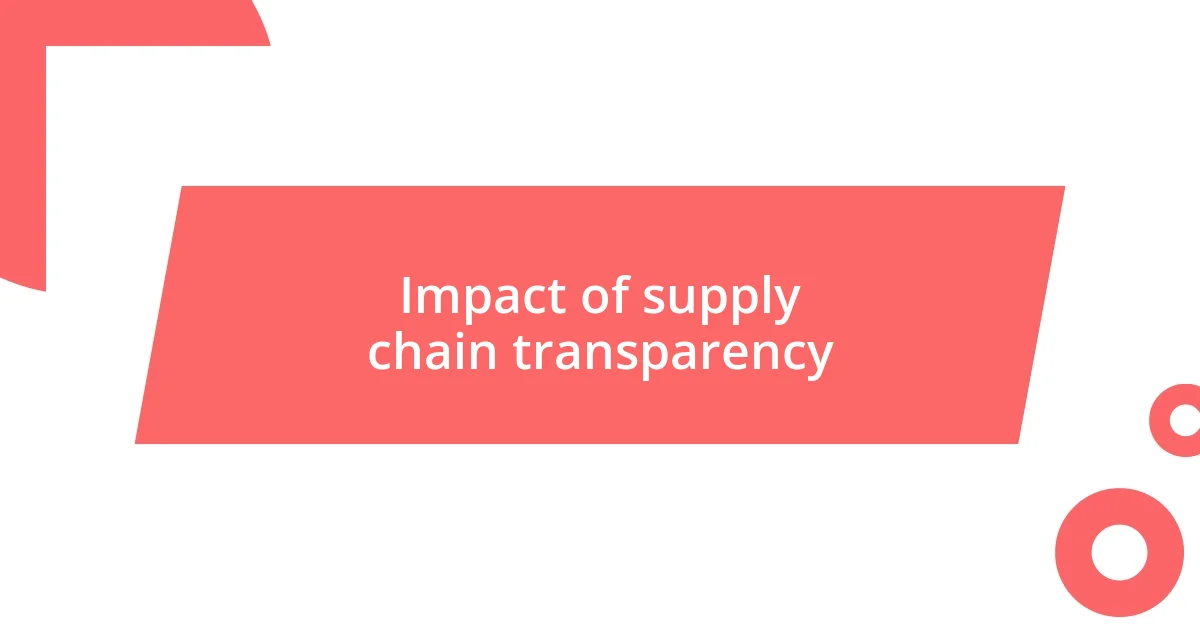
Impact of supply chain transparency
When I think about the impact of supply chain transparency, one key observation stands out: it can create a bridge of trust between consumers and brands. In my own journey, I’ve encountered businesses that took the bold step of unveiling their sourcing processes, and the response was overwhelmingly positive. People appreciate knowing where their products come from. It’s heartening to see how this transparency drives not just customer loyalty but also sets a higher standard across industries.
I’ve also realized that transparency can lead to unexpected benefits within the organization itself. For instance, I once worked with a company that decided to openly share its supply chain information with its stakeholders. This encouraged employees to take pride in their roles, knowing they were part of something meaningful. The excitement was palpable. Suddenly, everyone felt more invested in the company’s mission. Isn’t it fascinating how transparency can empower not just consumers but also the workforce behind the scenes?
On a broader scale, the ripple effects of transparency can contribute to a healthier global market. Imagine if all businesses embraced this practice. From my perspective, it would create a marketplace where ethical sourcing goes hand-in-hand with accountability. Wouldn’t that revolutionize consumer choices? As I’ve seen firsthand, when companies make a genuine effort to be transparent, they inspire others to do the same, fostering a culture of responsibility that benefits everyone involved.
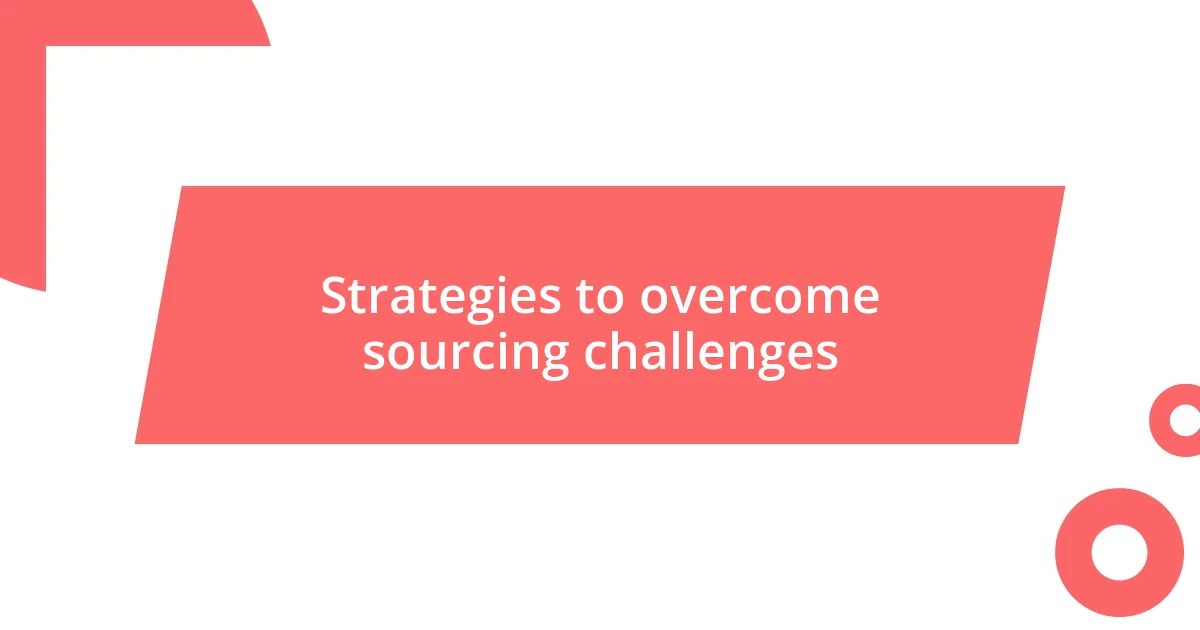
Strategies to overcome sourcing challenges
One effective strategy to navigate sourcing challenges is to cultivate direct relationships with suppliers. In my experience, having open lines of communication can make a world of difference. I recall visiting a supplier’s facility where I was able to meet the team behind the products. This face-to-face interaction fostered trust and opened up discussions about ethical practices that I never thought possible over email. Wouldn’t it be fantastic if all businesses prioritized these kinds of personal connections?
Another approach involves leveraging technology for greater supply chain visibility. I’ve seen companies utilize blockchain and other digital tools to track sourcing and ensure compliance with ethical standards. For instance, partnering with a tech firm to create a transparent tracking system not only improved accountability but also significantly reduced the mystery surrounding our supply chain. This collective effort toward transparency empowered everyone involved—doesn’t it make you wonder what other innovations could address these challenges?
Finally, investing in training for teams is crucial. From my perspective, equipping employees with knowledge about ethical sourcing practices creates advocates within the organization. I remember implementing a workshop that focused on understanding the importance of ethical sourcing. The enthusiasm among participants was infectious! They left the session not only more informed but inspired to uphold our ethical commitments. Isn’t it inspiring to see how education can transform a workplace culture?










